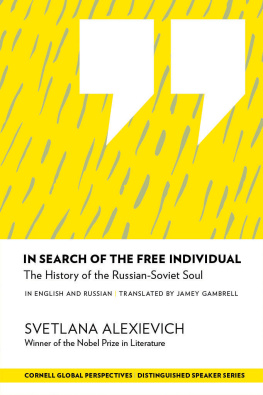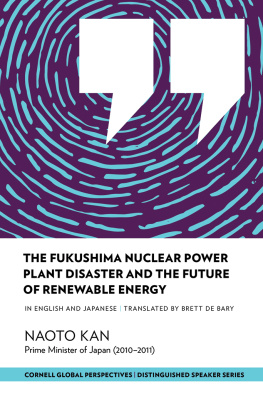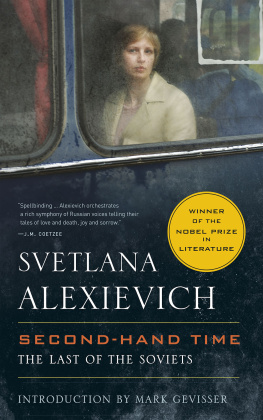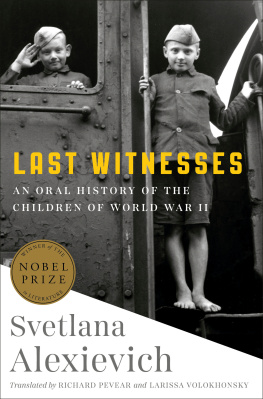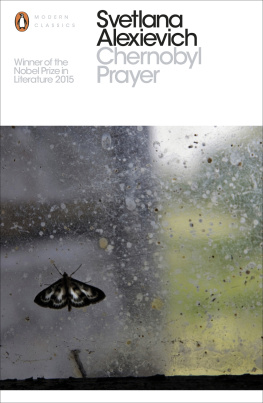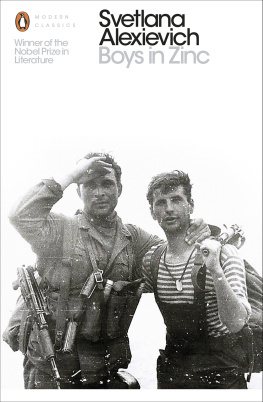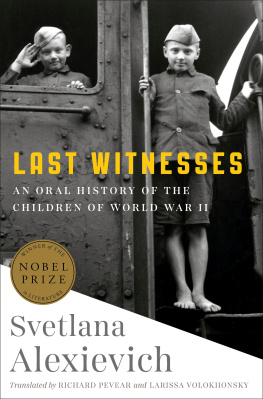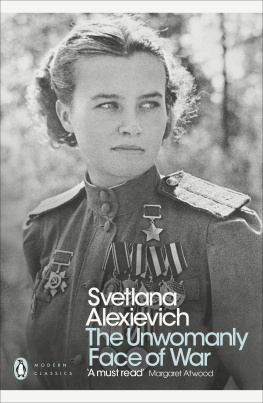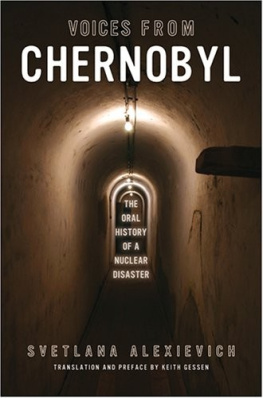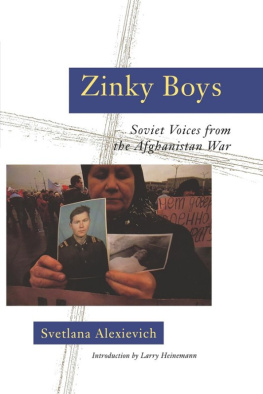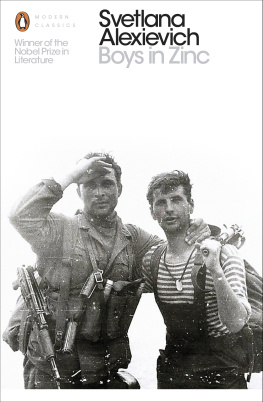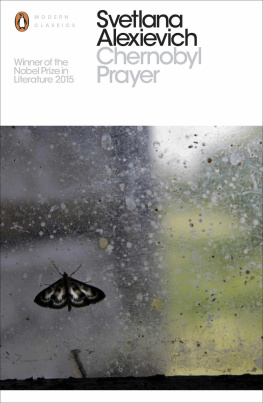I LOVE LIFE IN ITS LIVING FORM, life thats found on the street, in human conversations, shouts, and moans. That sort of life is genuine, not yet shaped by someone elses ideas or talents.
This probably comes from my childhood. My parents were village teachers and there were always plenty of books at home. But in the evenings, I was drawn away from books to the benches outside where the women of the village gathered. It was the post-war period, when young boys were still getting themselves blown up in the forest by German and partisan mines. As far as I remember, only women lived in the village. No men had returned from the war. In the evenings, after milking the cows and finishing up the housework, the women would sit outside and talk about life and death. They talked about the war: how they saw their loved ones off, how they waited for them. How they believed the gypsy women who promised them miracles. It seems to me that I learned everything there was to know about love from their stories. Their stories affected me more than books. Life seemed mysterious and frightening.
It took me a long time to find a genre that corresponded to the way I viewed the world to the way my eyes saw and ears heard a genre that corresponded to my memory.
I chose the genre of the human voice. In my books, ordinary people, the ones we still refer to as the little men or women, talk about themselves. I discover my books on the street, I hear them outdoors. Sometimes I spend an entire day with one person. Its important to catch words in flight, as theyre born. Its important not to miss the conversational part of life, which we often neglect, dismiss as unimportant, leaving it to disappear in the bustle of life, in the darkness of time. It seems surprising that this could be literature. But I want to make every bit of our life into literature. Including ordinary, everyday words.
For over 30 years I chronicled the Red Empire. This unprecedented communist project spanned a vast territory and affected an enormous number of peopleover 200 million. The Russian Bolsheviks attempted to remake man, ancient Adam, into a new type of human being Homo sovieticus . The Red Man that I write about is a creation of the Soviet idea, the builder of communism, as he called himself. This chronicle comprises five books, but they are really one book about the history of the Russian-Soviet soul. They cover a period of almost one hundred years and several generations. I managed to speak to people who had seen Lenin and Stalin, who did time in Stalinist labor camps, but believed in Stalin, cherished their party membership cards, those little red booklets with the leaders profiles embossed on the cover. I remember an old woman who seemed to me to have risen from the dead. She was a communist who had spent 17 yearsher entire sentencein a distant corner of Siberia and miraculously survived. And yet she threatened to denounce me to the KGB because I was slandering the great leader and a great, heroic era. Communism was their religion.
For most of my life I lived among them, I lived the same life. My father was one of them; he believed in the party until the end, and asked that his party card be buried with him. This was the last generation to be mortally infected with communism. Bewitched by utopia.
We are their children, but we dont understand them. The protagonists of my more recent books are different. They talked about fighting in Afghanistan but didnt understand what cause they were supposed to be dying for; they talked about shoveling melted graphite off the roof of the Chernobyl reactor, doing work that should be done by robots. About the collapse of the mighty Red Empire, and how they were left behind, disoriented in this new world.
I am interested in domestic socialism, not heroic, pompous, public displays, but the socialism that lives in human souls. I reduce the great and grand to human scale. I am a historian of the soul. For me, feelings are also documents. I study missing history, the things that history usually overlooks. History is often arrogant, and dismissive of what is small and human. A whole choir sounds in each of my books, but the individual human voice can always be heard. For me, human beings exist simultaneously in two worldsin a specific time, and in the universe, the eternal. I spent five to seven years writing each book, and in each case recorded somewhere between 500 and 700 people of different ages and different professionsbecause the woman who fired a machine gun saw one war, and the woman piloting a bomber may not have seen a single person die during the war, she only saw the sky. The machine gunner talked about hand-to-hand combat, when a human isnt human anymore, just an animal who wants to live, a creature that slices and stabsat the eyes, the heart, the stomach.
I gather my books from hundreds of details, nuances, shades, and tints. Sometimes an entire day of conversation produces only a single phrase. But what a phrase! I was so little when I left for the front that I got taller during the war. Once I sat for four hours with a woman who was a submachine gunner during the war, and all I heard from her were banal newspaper platitudes: The war began, and we Soviet girls rushed to the front along with the men. Thats how the motherland raised us. I wanted to leave the house, I couldnt see how I could possibly break through the clichs. The propaganda. The male canon. Often, the women I spoke to wanted to tell their stories like men. But I was looking for specifics, for smells and subtleties, the kinds of things that distinguish a womans war from a mans. And then, when I was putting on my coat, just about ready to leave, the same woman said: Stay a bit longer. Let me tell youyou could never imagine how frightening it is to die at dawn. The birds are singing, its quiet, and in a few minutes youll get the order: Fire! The grass is so clean, the air is so pure, but you have to die. This is where literature begins. And later, at the end of the conversation she told me: After the battle we would walk through the fields and look for the livingmaybe someone had survived somehow. Soldiers were scattered across the trampled wheat like potatoes, they just stared at the skyGermans, and our soldiers, too. They were all so young, handsome. We felt sorry for all of them.
It was never my goal to put together a collection of horror stories, to overwhelm the reader. I was collecting the human. Dostoevsky asked the question: How much of the human is there in a human being? How can the human in this human being be protected? Thats the question Im looking to answer. I collect the human spirit. You may say: its an ephemeral thing, too elusive. But art attempts to capture it. And every era has its own answers.
It takes a long time and a great deal of work to put together an image of a period from different stories. What kind of people lived at this time? What did they believe in? What were their fears? Their superstitions? Their perplexed speculations about the meaning of life? I always asked everyone who fought: how can a person live with the idea that he has the right to kill another human being? To kill and not to go mad? People died too easily and killed too easily for grand ideas. In order to hear something new, you have to ask in a new way. I have to be interesting to the person. I, too, have to tear myself away from the predatory clutches of my time, to stand at least a little bit to the side.

